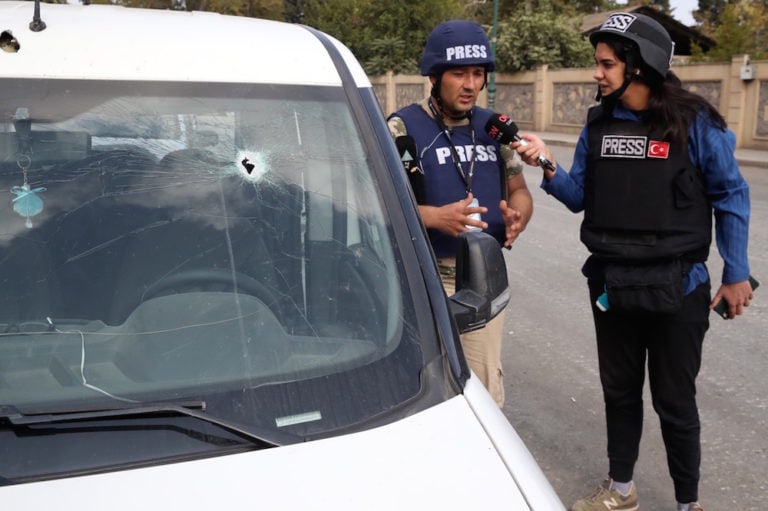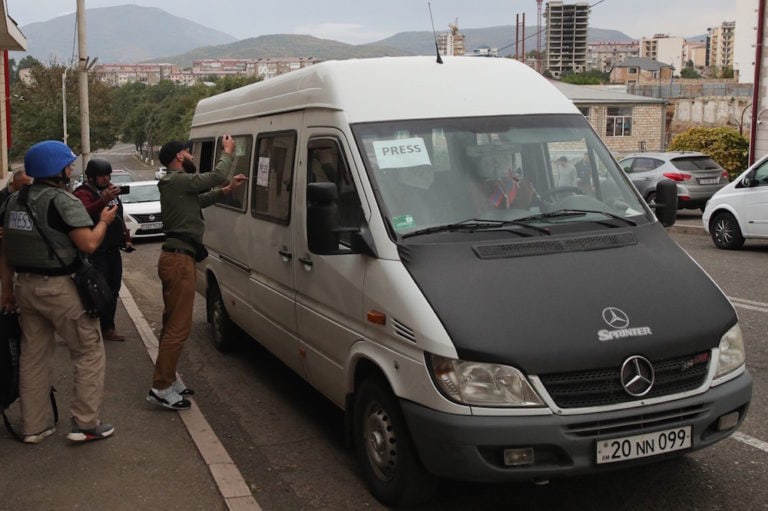(RSF/IFEX) – RSF has criticised the Armenian authorities for refusing once again to grant broadcasting licences to Armenia’s two main independent TV stations. The organisation said the decision raised “serious doubts” about the impartiality of the country’s media regulatory body. On 18 July 2003, applications by the A1+ and Noyan Tapan stations were rejected by […]
(RSF/IFEX) – RSF has criticised the Armenian authorities for refusing once again to grant broadcasting licences to Armenia’s two main independent TV stations. The organisation said the decision raised “serious doubts” about the impartiality of the country’s media regulatory body.
On 18 July 2003, applications by the A1+ and Noyan Tapan stations were rejected by the National Broadcasting Commission for the third time since their frequencies were assigned to other stations on 2 April 2002. Both stations had broadcast criticism of President Robert Kocharian’s government.
“The absence of these two stations is increasingly serious for the diversity of news in Armenia,” said RSF Secretary-General Robert Ménard. “Since the nine members of the commission are appointed by President Kocharian, we have serious doubts about their independence.”
Ménard called on the commission’s president, Grigor Amalian, to clarify the legal basis on which the licences had been refused, to assign broadcasting licences more openly and to strive to make the commission truly independent.
The 18 July decision followed bidding for three frequencies in the Yerevan area. The commission said the plans presented by A1+ and Noyan Tapan “were not good enough.” The stations were also unsuccessful in bidding on 11 June for licences that would have enabled them to broadcast for seven years.
The April 2002 cancellation of their licences, one year before general elections, provoked widespread local and international protests, including demonstrations demanding Kocharian’s resignation and an official note of concern from the United States government about the future of the country’s independent media. The Organisation for Security and Cooperation in Europe (OSCE) had asked for a rapid assignment of frequencies so that all stations would be on the air before the March 2003 elections. The National Press Club in Erevan named Kocharian an “enemy of press freedom” on 3 May 2002, World Press Freedom Day.


